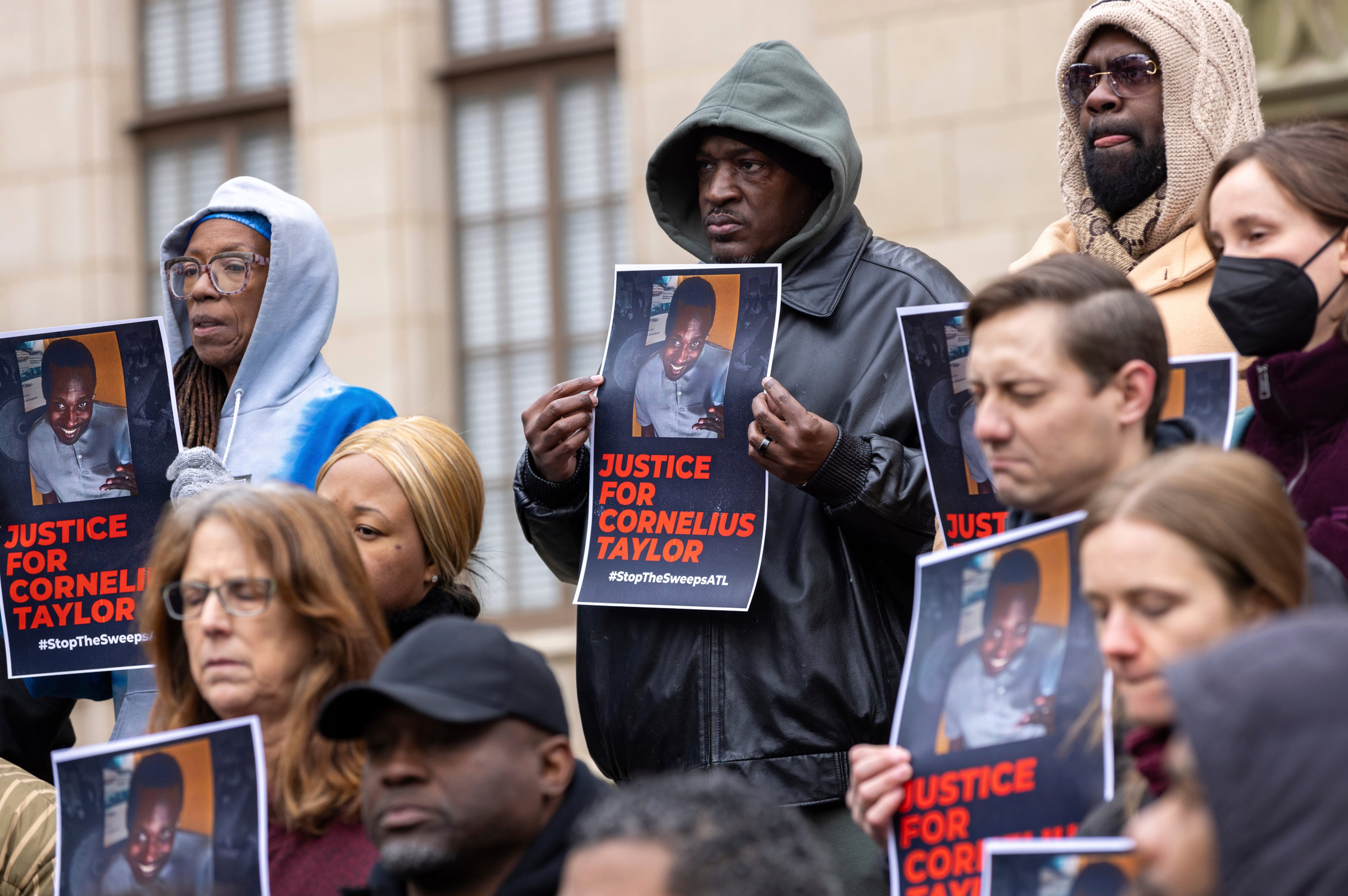Transgender woman sues AT&T for $3M after being fired, alleges discrimination
A Cumming resident who spent almost two decades as a senior project leader for AT&T has sued the telecommunications giant, demanding at least $3 million in compensation for alleged gender-based discrimination.
Robyn Casias was regarded as a star AT&T employee for the 16 years she presented as Robert Lott, a married man with three children, the lawsuit says. She said that drastically changed in 2017 when she revealed her transgender status to colleagues during a weeklong meeting in Texas, where AT&T is headquartered.
“Though Robert Lott was a star who led the most important projects, Robyn Casias was an unwanted and unwelcomed outcast who was refused substantive work for three years and then terminated,” the Dec. 22 lawsuit states.
AT&T wouldn’t comment on the complaint, but provided a statement to The Atlanta Journal-Constitution in response to questions about the case.
“We do not discriminate, nor do we tolerate discrimination of any kind, including based on (an) individual’s gender, gender identity or sexual orientation,” the company said.
Casias said she started working for AT&T in December 2001 as a senior member of its technical staff in Georgia, and was promoted in 2006 and again in 2012. She said her work was worth millions of dollars to the company and was recognized in May 2017 with a service excellence award.
By then Casias had “fully socially transitioned” as transgender among her family, friends and the Cumming community, but was afraid to do so at work for fear of retaliation, the lawsuit states.
Casias said her award gave her the confidence she needed about her value to the company in order to reveal her transgender status to colleagues.
During the first and second days of the Texas meeting in June 2017, Casias presented as a man and referred to herself as Robert, per the lawsuit. On the third day, she “courageously decided to unveil her true self.”
“That morning, (Casias) put on her dress, makeup, and nail polish, and left her hotel room experiencing a whirlwind of emotions – fear, irreversible decisions, the possibility of turning back, relief, regret, joy, newfound freedom, apprehension about discrimination, and a myriad of other intense feelings,” the complaint states.
Casias said her revelation was met with disbelief and anger from colleagues. The face of a male coworker at the meeting “turned beet red” before he aggressively demanded to know what she was doing, she alleged.
“The long and successful career she had enjoyed at AT&T while presenting as male came to a screeching, unlawful halt thereafter,” the lawsuit says. “After her workplace transition, (Casias) was taken off many of the previous projects she had been assigned prior to her transition.”
Casias said AT&T started assigning her predominantly administrative jobs and farmed out her work as a project architect to others. She said she was also excluded from critical meetings and presentations.
In August 2018, Casias first reported the alleged discrimination to AT&T’s human resources staff, and was told soon afterward that her case was closed, the complaint states.
Casias said the pattern of stonewalling continued as she was assigned to different managers who each failed to include her in projects for which she was qualified. She said non-transgender colleagues with less experience and qualifications were promoted while she was overlooked.
In February 2020, Casias expressed her concern to an AT&T executive, having repeatedly complained to human resources staff, the lawsuit alleges. She said the executive told her he would try to find her meaningful work within the company.
Casias said she also applied for a senior role at AT&T subsidiary Cricket Wireless after being encouraged to do so in March 2020 by an executive there who was a friend and former colleague. She said she suspected that an AT&T manager sabotaged her attempted move in May 2020, and that her application was denied several weeks later.
In July 2020, Casias was fired by AT&T for being “on the surplus,” her lawsuit states.
Casias is seeking at least $1 million in compensation on each of three civil claims for gender discrimination, retaliation, and punitive damages, in addition to litigation costs.
Her attorneys did not immediately comment on the case.



